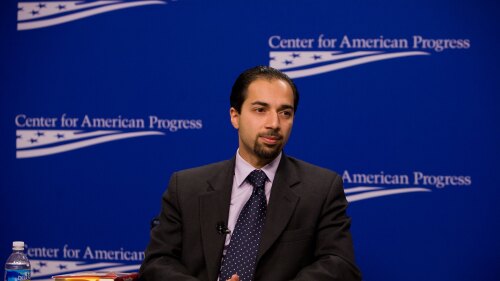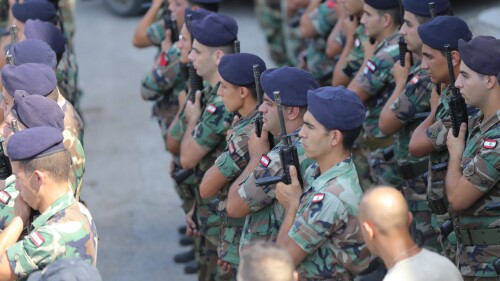Secretary of State Antony Blinken with Qatari Foreign Minister Mohammed bin Abdulrahman al Thani on July 22. |
The State Department has opened an inquiry into an Israeli government report that Qatar’s monarchy funded Iran’s Islamic Revolutionary Guard Corps, a U.S.-designated terrorist organization.
“We are looking into the allegations,” a State Department spokesman told the Washington Examiner earlier this month, adding that “Qatar and the United States have a robust strategic, security, and counterterrorism partnership. Qatar is one of the United States’s closest military allies in the region. U.S.-Qatar military and security cooperation contributes to the safety and stability of the region.”
The alleged terror finance activities of the Islamic regime in Doha surfaced during last month’s Oval Office meeting between President Joe Biden and outgoing Israeli President Reuven Rivlin.
Rivlin furnished the White House with intelligence regarding “recent funding that Qatar provided to Iran’s Islamic Revolutionary Guard Corps,” the Times of Israel reported, citing an Israel diplomatic official speaking on the condition of anonymity. The person also added that the information alarmed the U.S. officials at the meeting.
The Washington Examiner contacted multiple Israeli government ministries, including the foreign ministry, that all remained quiet on the issue. Israeli governments, as a general rule, summarily dismiss false news reports. The lack of a denial suggests that the intelligence is serious and was indeed forwarded to the Biden administration.
Secretary of State Antony Blinken on Thursday met with Qatar’s Deputy Prime Minister and Foreign Minister Mohammed bin Abdulrahman al Thani and discussed the crises affecting Afghanistan, Yemen, and Lebanon. The Qatari foreign minister supported U.S. calls to promote “peace and security.”
The Persian language service of the U.S.-operated Voice of America news organization confirmed via a second source that Israel submitted intelligence to Biden about Qatar’s financing of the IRGC.
The Quds Force, a branch of the IRGC largely responsible for terrorist operations outside Iran, has killed over 600 American military personnel in the Middle East.
Its leader, Qasem Soleimani, was killed by a U.S. drone strike in Iraq in January 2020. Esmail Qaani was appointed to lead the organization following Soleimani’s death.
The Washington Examiner asked for comment from Qatar’s foreign ministry and its embassies in Washington and Berlin.
Rivlin’s White House meeting coincided with a U.S. Army statement, reported by Stars and Stripes, that “the U.S. has closed sprawling bases in Qatar that once stored warehouses full of weaponry and transferred the remaining supplies to Jordan, in a move that analysts say positions Washington to deal better with Iran and reflects the military’s changing priorities in the region.”
The U.S. closed Army Camp As Sayliyah-Main, Camp As Sayliyah-South, and the Falcon ammunition depot, the military news outlet said.
The tiny monarchy of Qatar, rich from natural gas and oil, has been embroiled in allegations that it has financed a wide range of Sunni and Shia terrorist states and movements, including Hezbollah in Lebanon and the Islamic State.
The fresh allegations from Rivlin may create new tensions between Qatar and the U.S., which has nearly 10,000 military personnel stationed at the Gulf state’s al Udeid Air Base.
The Biden administration is once again confronted with a crisis with Qatar because the monarchy ruled by Emir Sheikh Tamim bin Hamad al Thani has been repeatedly alleged to finance Islamic-animated terrorist movements that seek to kill Americans.
Qatar’s status as an alleged leading state sponsor of international terrorism might also complicate its role in hosting the World Cup in 2022.
Benjamin Weinthal is a journalist and fellow for the Foundation for the Defense of Democracies. Follow him on Twitter.
Jonathan Spyer is a Ginsburg/Milstein Writing Fellow at the Middle East Forum and director of the Middle East Center for Reporting and Analysis.









